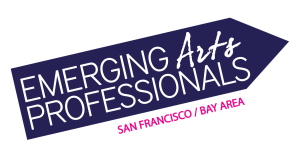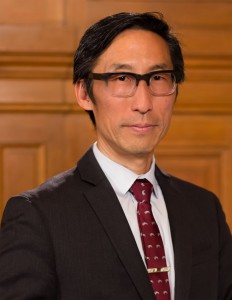Saturday, February 4, 2017: CULTURAL EQUITY
Almost 43% of California residents speak a language other than English at home, a proportion far higher than any other state. Additionally, no single racial or ethnic group forms a majority of California’s population, making the state a minority-majority state. How can arts managers advance the conversation on cultural equity? Is it about engaging new and diverse participants, providing more support for community arts, tacking institutional or systemic marginalization or rethinking creative placemaking/keeping strategies? Fellows will be expected to take an active role in assessing the work achieved to date on their issue, and to initiate creative, relevant and impactful responses.
Outcomes:
- Cultivate a practice of critical inquiry
- Strengthen capacity for mindful listening, peer coaching, and priority setting across complex situations
- Articulate individual strategy for personal and professional sustainability/resiliency; Articulate how this strategy supports the health of the sector
Guest Speakers
Dr. Anne Huang, Development Director, World Arts West
Dr. Anne Huang is the Development Director of World Arts West, producers of the San Francisco Ethnic Dance Festival, which supports Bay Area dance companies that are sustaining and celebrating the world’s cultural legacy. With over twenty years of experience in arts administration and executive management, Anne specializes in resource development and capacity building for traditional artists and culturally specific arts organizations.
Supporting and developing the traditional arts is Anne’s second career. Inspired by her involvement as a singer and dancer with groups such as Oakland Interfaith Gospel Choir and Obakoso, she left her successful career in dentistry to fulfill her lifelong dream to support the traditional arts. Anne has worked with CubaCaribe, LIKHA, Chinese Culture Center of San Francisco, Dimensions Dance Theater, Brasarte, Mahea Uchiyama Center for International Dance, and many other arts organizations.
Anne is the former Executive Director of the Oakland Asian Cultural Center (OACC), where she transformed OACC from a struggling arts organization into a vibrant cultural institution. She is also the founding director of the Oakland Chinatown Oral History Project, which aims to preserve Oakland Chinatown’s cultural and historical legacy through intergenerational dialogue. Anne has served on many funding and cultural panels, such as California Arts Council, San Francisco Arts Commission, New England Foundation for the Arts, Western States Arts Federation, City of Oakland, and Alliance for California Traditional Arts. Her dedication comes from her belief in the timeless significance of traditional arts to empower individuals and transform communities.
Supervisor Eric Mar
was elected in November 2008 to represent District 1, the Richmond District. In 2012, he was re-elected for a second term.
For over two decades, Eric has been a dedicated and responsive advocate for working families, youth and seniors, small businesses and all the diverse residents of the Richmond District and San Francisco. He has lived in the Richmond District since 1986.
From 2000 to 2008, Eric served as a Commissioner and past President of the San Francisco Board of Education. He led efforts to clean up corruption and financial mismanagement, close the achievement gap, strengthen parental involvement in educational policy-making and increase resources for public education.
From 1992 to 2008, Eric taught Asian American and Ethnic Studies at San Francisco State University where he mentored and supported hundreds of young people to become active in their communities and the political process.
He is also an elected member and past Vice Chair of the San Francisco Democratic Party’s Central Committee. Eric has worked to strengthen the local Democratic Party and build bridges with grassroots communities.
Eric is the past director of the Northern California Coalition for Immigrant Rights and a longtime social justice activist with the Chinese Progressive Association and other grassroots organizations. As a public interest attorney, he served on the Human Rights Committee of the State Bar of California and the Civil Rights Committee of the National Asian Pacific American Bar Association. He is an ally of the labor movement and a past shop steward with SEIU Local 790.
Readings & Assignments
LOCATION CHANGE: Two Spirit Powwow, Festival Pavilion at Fort Mason, 2 Marina Blvd, San Francisco, CA 94123
Suggested reading, not required:
Placemaking and the Politics of Belonging and Dis-belonging by Roberto Bedoya
Explaining white privilege to a broke white person by Gina Crosley-Corcoran
Watch: Othering and Belonging, john a. powell, Director of the Haas Institute for a Fair and Inclusive Society
Reflection questions:
- What is staying with you from the readings and video?
- In what ways does identity inform cultural institutions? The “norm” of cultural institutions?
- How does cultural equity sit in the margins of the arts in most cities?
Group Agreement Examples: Please be prepared to share an example you experienced/practiced
- PRACTICE “BOTH / AND”: When speaking, substitute “and” for “but.” This practice acknowledges and honors multiple realities.
- REFRAIN FROM BLAMING OR SHAMING SELF & OTHERS: Practice giving skillful feedback.


